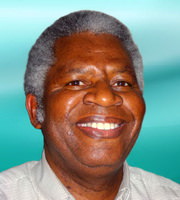
Flow is a very important concept in Positive Psychology. It was conceptualized in 1975 by researcher Mihaly Csikszentmihalyi and it is an important part of the optimal experience. But what exactly is flow? Flow is a state of mind in which we are fully focused on the task at hands and time and space seem irrelevant and we feel we can perform the task and it represents a challenge we can face. The pleasure of performing such task derives from an intrinsic motivation, we do it simply because we enjoy it. Imagine this: you love gardening. Whenever you have the time, you go to your garden to do things. You could spend a whole afternoon there and only realize it’s been a couple of hours when it gets dark or someone calls you for dinner. Ever happened to you?
Why is it important to feel flow?
People who experience flow often report higher levels of subjective well-being. Whether it is at work, at home, during their leisure time, with friends and family. You may not experience happiness during the experience of flow itself because it would be a distraction, but studies have shown that after performing a flow activity individuals report higher levels of well-being, sense of accomplishment, and purpose and meaning.
Just so you know, flow experiences have been reported in reading a book as being more engaging than watching TV. So you might want to think about reducing your TV watching hours and devote your time to other activities.
Positive psychologists advocate that a full life is a life where we are truly engaged, aware, and fully involved in our lives. And isn’t a flow an involving activity? So flow can be a really important part of finding your “happiness”.
How can I identify a flow experience?
According to Csikszentmihalyi’s years of research the experience of flow is quite universal and it has distinct characteristics from other types of experiences. But first we should, as the author did, distinguish the flow experience from the popular “go with the flow”. Going with the flow refers to a spontaneous attitude of letting things happen and not contradict the events in place. On the other hand, flow experiences are chosen (by us) and involve using our skills, concentration and perseverance. We choose to do sports instead of working around the house, we choose to do volunteer work instead of going out partying with friends. Not that these experiences are mutually exclusive, just serve as examples.
So what makes a flow experience? Csikszentmihalyi (1999) says that two important characteristics must be present:
1) People should know what to do moment by moment while performing the task
2) The abilities of that person to act match the opportunities for action
Breaking it down, when experiencing a flow activity you should know what you’re doing and what to do next and have instant feedback. But what makes this a challenging task is that you may have the ability but it still represents a form of challenge for you. If it’s too easy you’ll find it boring, if it’s too hard you’ll soon want to give up.
Creative activities are easy to spot as flow experiences. Take for instance painters, writers, musicians. Don’t you see them fully engaged in what they’re doing taking the pleasure out of what they’re doing?
How can I introduce more flow into my life?
A few tips according to Csikszentmihalyi (1997) from his book on “Finding Flow”:
- The activity has a set of goals and requires certain actions. Take chess, poker, and any kind of sport. The rules help you set your mind to a flow state because there is no need to question them.
- You’re fully involved in the challenge. It’s not too hard to overcome but just enough to make you push harder and learn new things. Can you think of anything like that?
Can you think of anything in your life that represents a flow experience? Just so you know, adults often report more flow experiences at work than during their leisure time. That has to do with the clear set of rules and goals at work. Happiness can be found at work as well.
Image Credit: https://www.flickr.com/photos/james_sickmind/5448335436

















